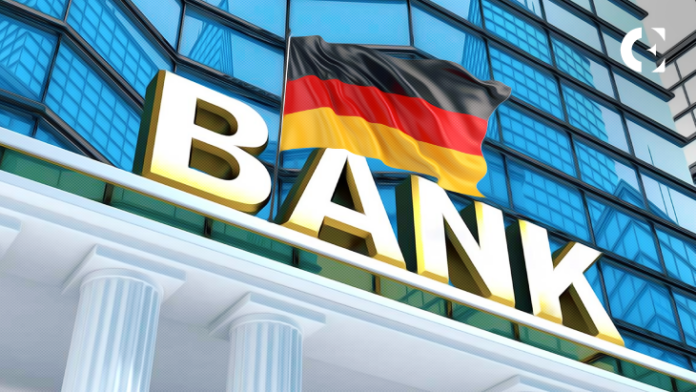- LBBW, Germany’s largest bank, has partnered with Bitpanda to offer crypto custody services starting in mid-2024.
- German banks like Deutsche Bank and DZ Bank are exploring the crypto sector while anticipating MiCA regulations.
- MiCA’s implementation in December 2024 hinges on ongoing consultations.
Landesbank Baden-Württemberg (LBBW), Germany’s largest bank, is set to partner with Bitpanda, an Austrian exchange platform, to provide crypto custody services. According to reports by Bloomberg, the two firms will start offering this service to institutional and corporate clients in the second half of 2024.
Jürgen Harengel, COO of corporate banking at LBBW, underlined the significant shift in the market, with a surge in interest in digital assets among its corporate customer base. “The demand from our corporate customers for digital assets is increasing,” he stated.
This strategic move by LBBW aligns with the evolving German banking and asset management landscape, where institutions are stepping up to offer crypto-related services. With a substantial €333 billion ($355 billion) in assets under management, LBBW will leverage Bitpanda’s platform to provide custody services.
In line with regulatory developments, German banks are exploring opportunities in the cryptocurrency sector. For instance, Deutsche Bank has initiated ventures into offering digital asset custody services, partnering with Swiss crypto startup Taurus since September 2023. Likewise, its subsidiary, DWS, is part of a team developing a euro-pegged stablecoin.
Meanwhile, DZ Bank, the second-largest bank in Germany, announced plans to commence a crypto trading pilot later in 2024. This news followed DZ’s unveiling of its digital asset custody platform in November 2023.
These moves by German banks are in anticipation of the Markets in Crypto-Assets (MiCA) regulatory framework, set to be fully implemented by December 2024.
In an interview, Vyara Savova, senior policy lead at the European Crypto Initiative, said crypto exchanges will be fully regulated by the end of 2024. Savova mentioned that,
“2024 is the year of MiCA, and the whole EU will now have a comprehensive legal framework for crypto-assets, crypto-asset services, and crypto-asset service providers (also known as CASPs). Crypto exchanges are a type of CASP under MiCA and will become fully regulated in December 2024,”
The MiCA bill is nearing a conclusion, with the second consultation package for reverse solicitation guidelines scheduled to conclude on April 29. The outcome of this consultation will be pivotal in MiCA’s final implementation in December.
“The consultation will determine how exchanges and other CASPs from countries outside the EU might provide services to EU citizens without a license and how these services should be marketed in Europe. The outcomes of this consultation will be critical for MiCA’s implementation in December.” Savova opined.
Disclaimer: The information presented in this article is for informational and educational purposes only. The article does not constitute financial advice or advice of any kind. Coin Edition is not responsible for any losses incurred as a result of the utilization of content, products, or services mentioned. Readers are advised to exercise caution before taking any action related to the company.










